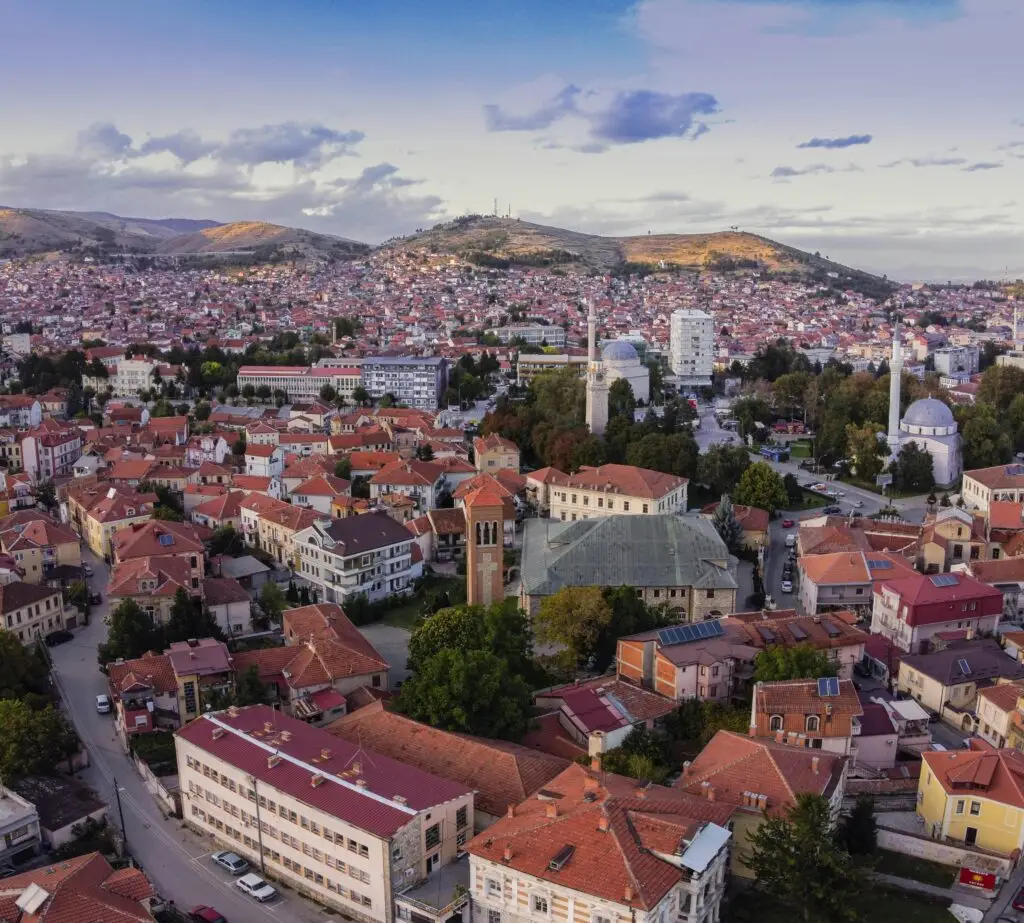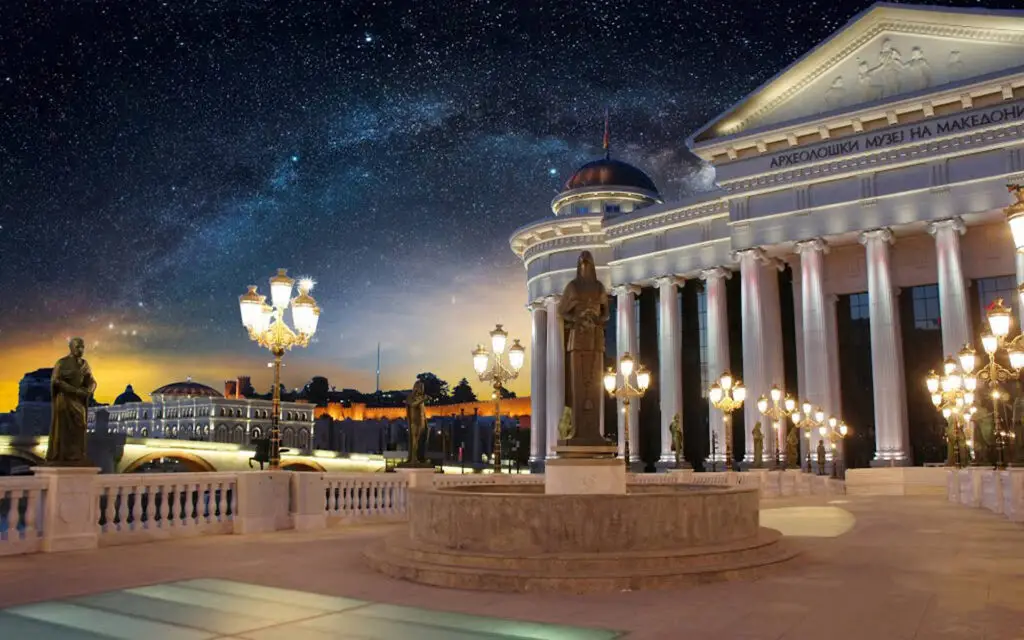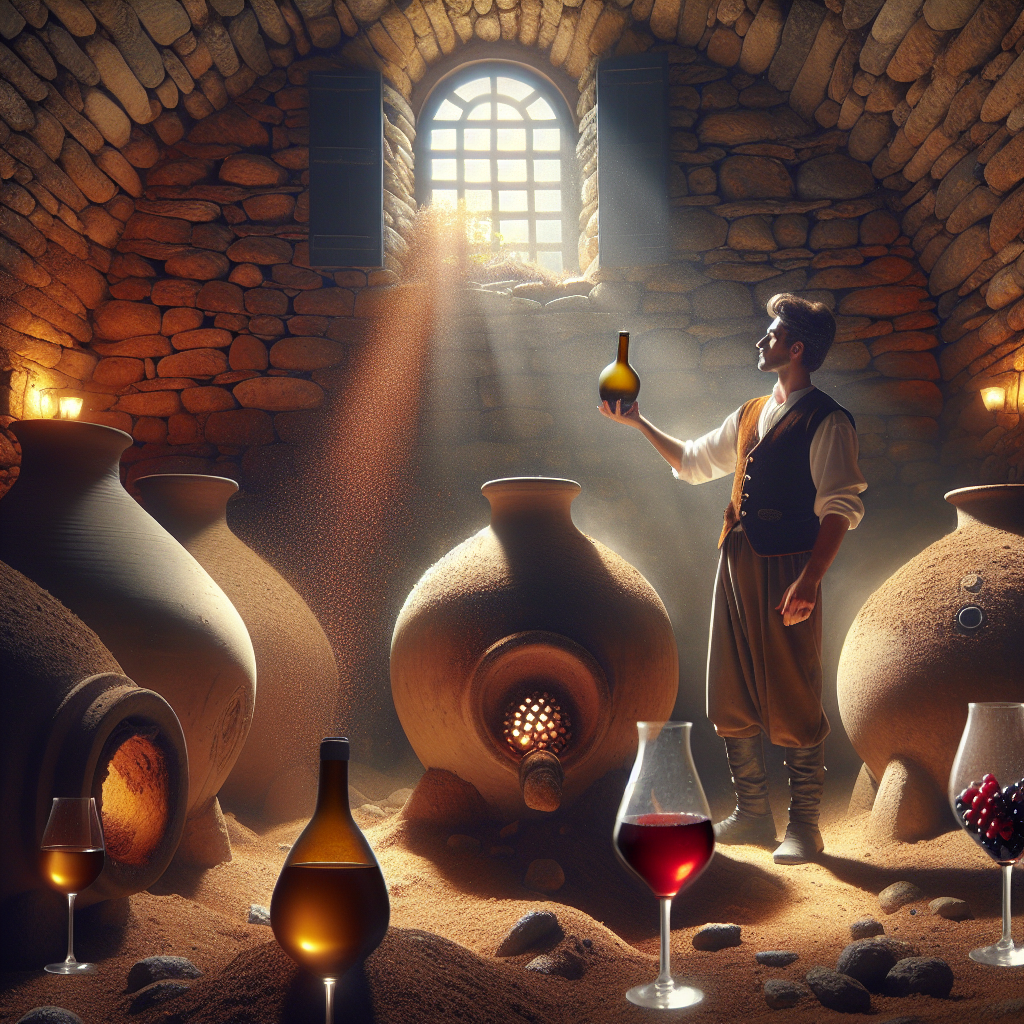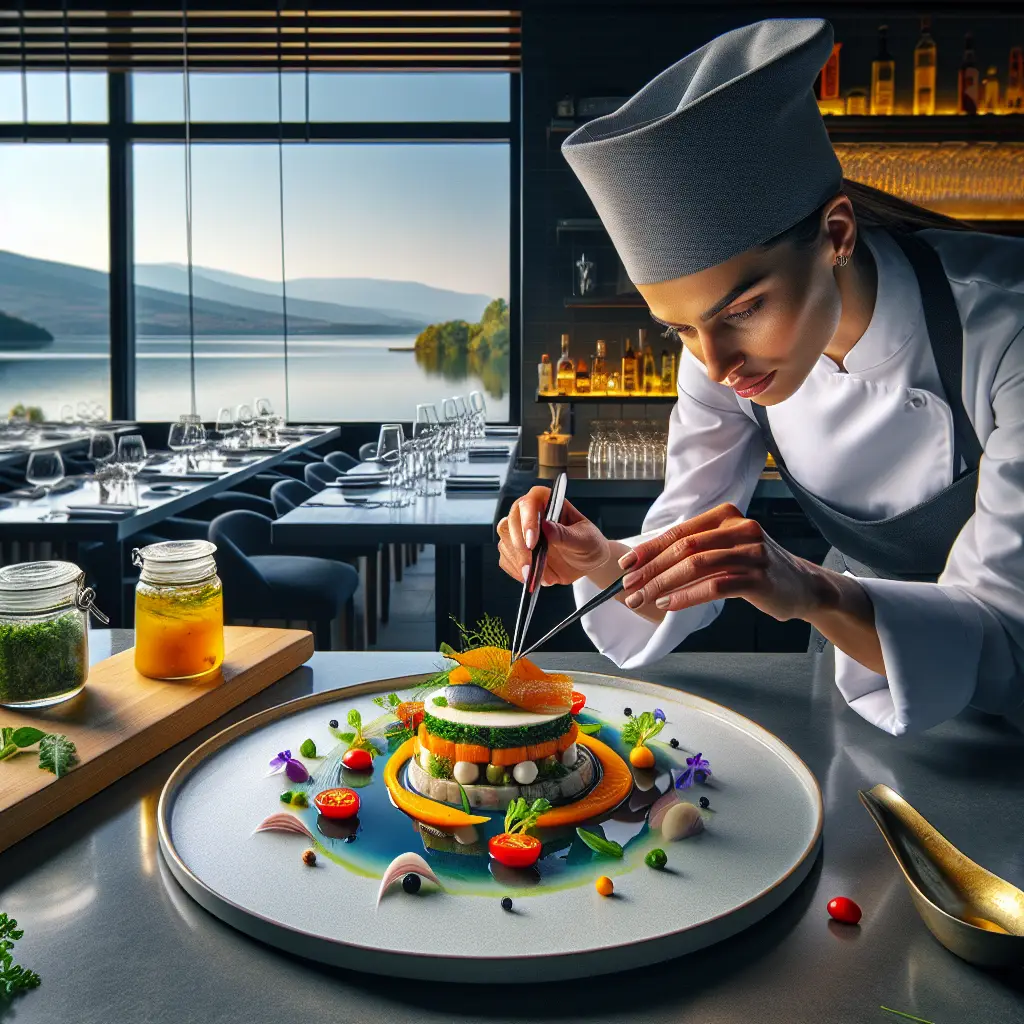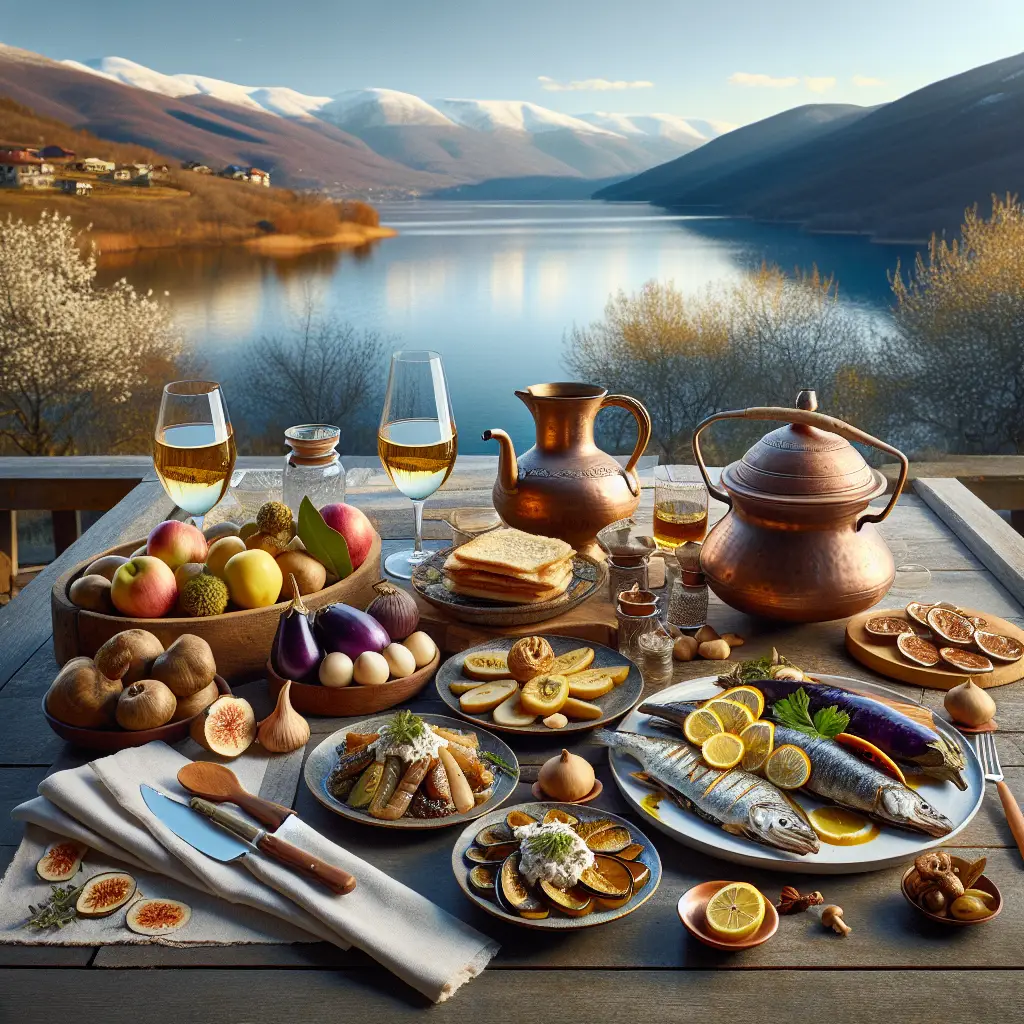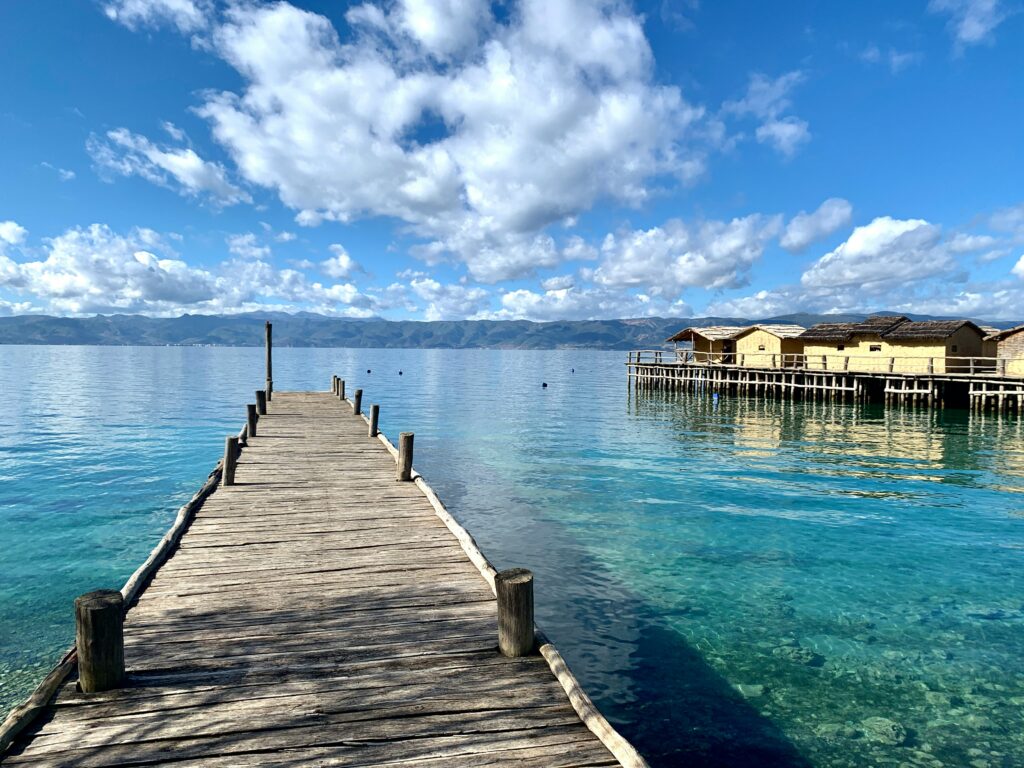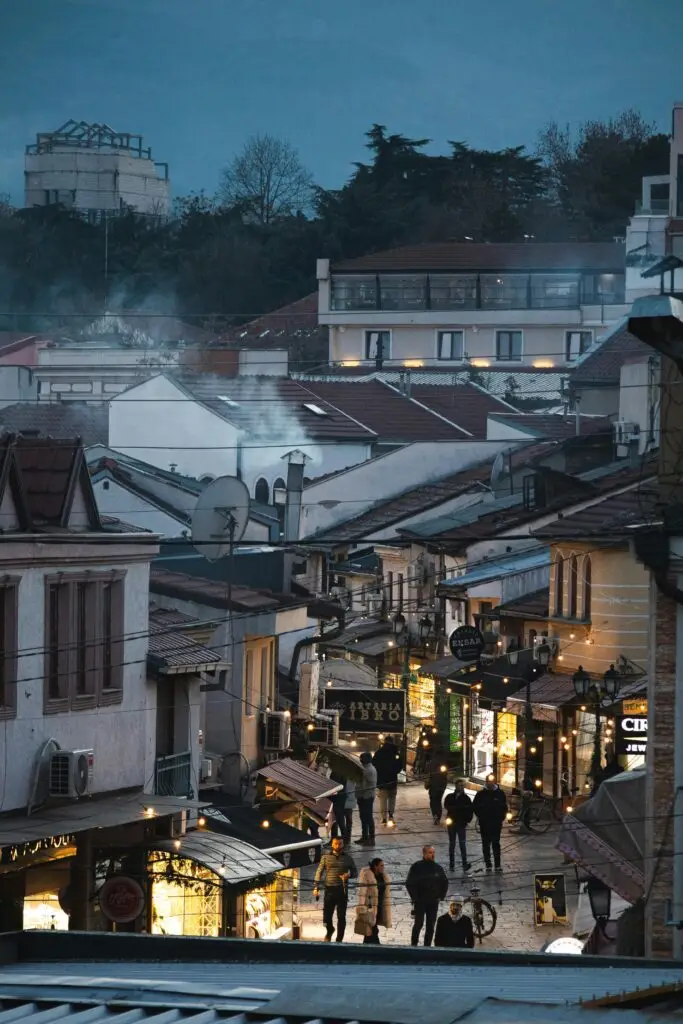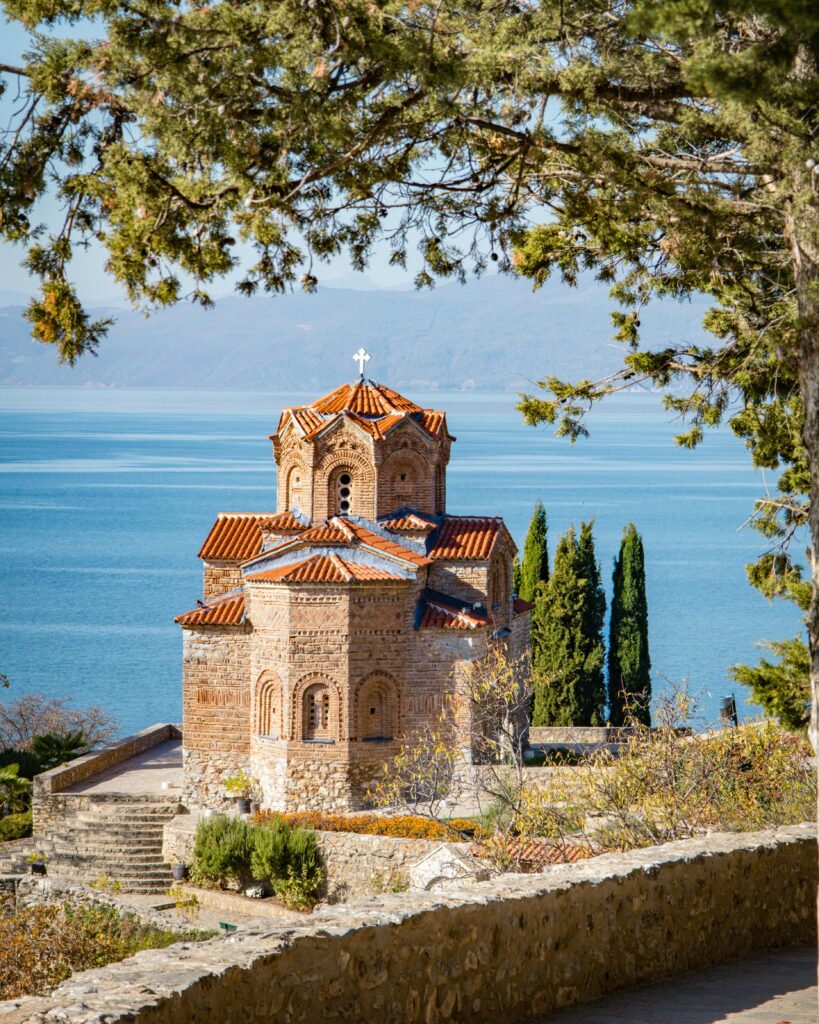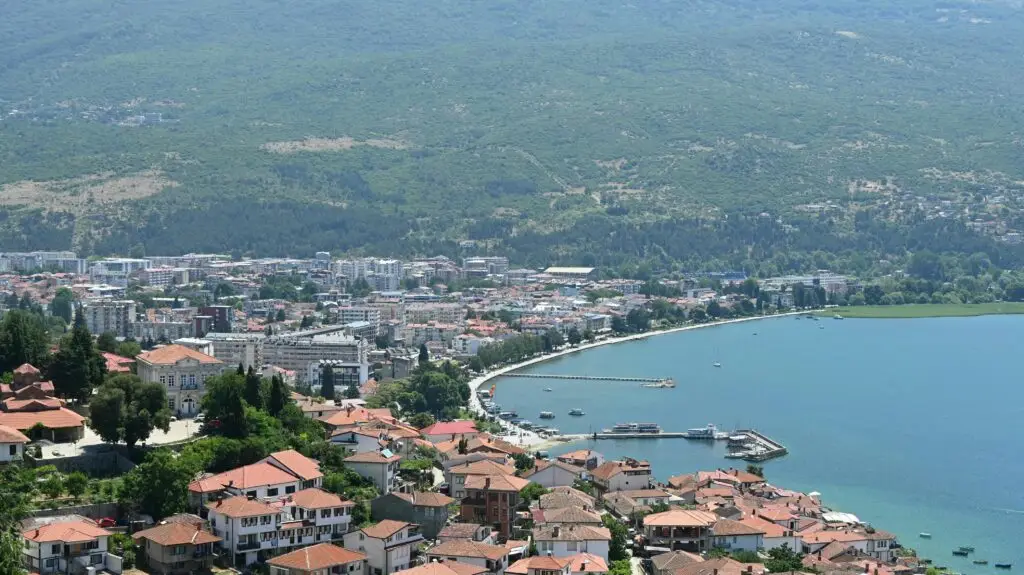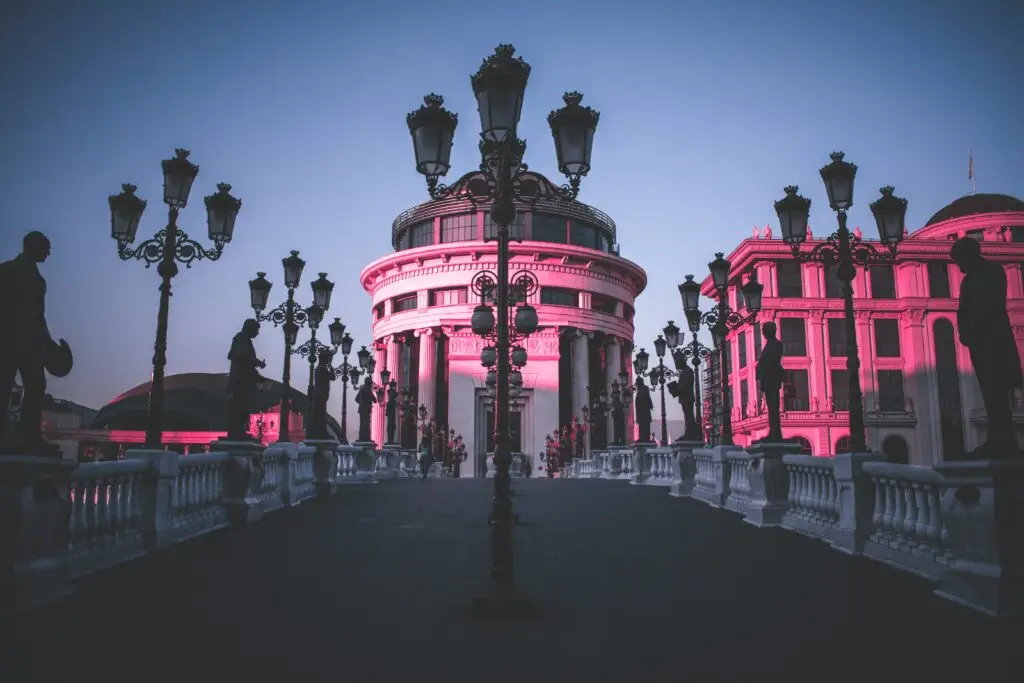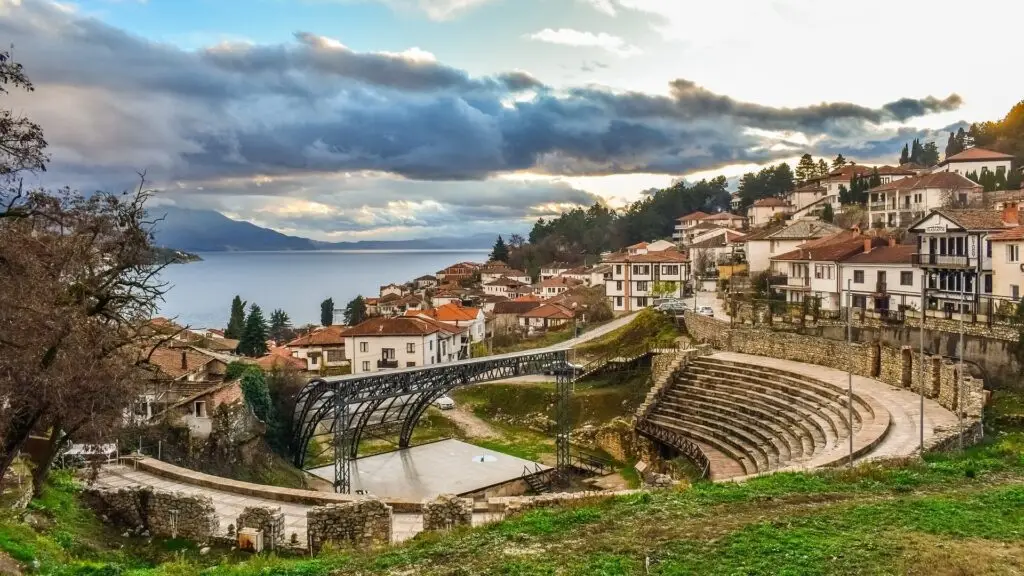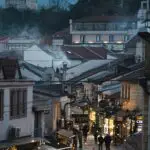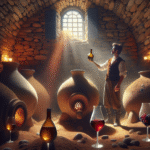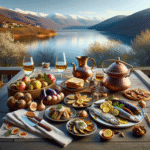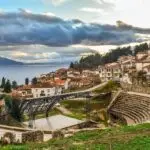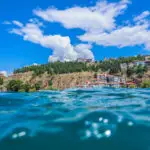Now Reading: Berovo: The Macedonian Mountain Town Where Time Stands Still
-
01
Berovo: The Macedonian Mountain Town Where Time Stands Still
Berovo: The Macedonian Mountain Town Where Time Stands Still

Nestled in pine forests 1,000 metres above sea level, the secluded town of Berovo offers visitors a glimpse of traditional Macedonian mountain life, complete with pristine nature, slow-food traditions, and a pace of life dictated by the changing seasons rather than digital notifications.
Morning mist rises slowly through pine forests as the sun’s first rays illuminate wooden houses with distinctive red-tiled roofs. In the central square of Berovo, elderly men gather for their ritual morning coffee, discussing weather patterns and forest conditions with the detailed knowledge that comes from lifetimes spent in these mountains. Meanwhile, at a nearby bakery, the day’s first batch of zelnik – traditional pastries filled with wild herbs and cheese – emerges steaming from wood-fired ovens, prepared according to recipes passed through generations.
Welcome to Berovo, a small mountain town in North Macedonia’s easternmost region that offers perhaps the country’s most authentic glimpse into traditional rural life. Situated 1,000 metres above sea level and surrounded by the pristine Maleševo Mountains, Berovo remains refreshingly untouched by mass tourism despite being just a two-hour drive from Skopje.
“We joke that Berovo exists in its own time zone,” smiles local guide Maja Spasovska. “Life here follows natural rhythms – the seasons, daylight hours, weather conditions. It’s a place where you naturally disconnect from digital life and reconnect with more fundamental patterns.”
This natural disconnection makes Berovo an increasingly popular destination for visitors seeking to escape urban pressures. The town and surrounding villages offer accommodation ranging from family guesthouses to the architecturally striking Maleshevo Hotel, where contemporary design incorporates traditional building techniques and materials. What unites these options is their integration with the natural environment and local way of life.
“We don’t offer artificial entertainment or scheduled activities,” explains Goce Stankovsk, whose family has converted their generations-old home into Aurora Guesthouse. “Instead, we invite guests to participate in whatever seasonal activities are happening – perhaps collecting wild berries and mushrooms in autumn, joining the hay harvest in summer, or learning traditional food preservation methods.”
This immersion in local life extends to cuisine, where Berovo showcases slow food principles that have existed here long before the term was coined. At Konaki Restaurant, sisters Elena and Milena Čapovski serve dishes based entirely on local, seasonal ingredients, many foraged from surrounding forests or grown in their extensive garden.
“Our grandmother taught us that good cooking begins with listening to what the land offers each day,” says Elena as she serves mantii – delicate dumplings filled with wild mushrooms and mountain herbs, topped with cultured cream from the region’s distinctive Maleševo sheep. “We never plan menus far in advance – we see what’s perfect that morning and create accordingly.”
This combination of high-altitude clean air, pristine nature, and wholesome mountain food has long given Berovo a reputation as a place of healing. During Yugoslav times, the town was known for convalescence retreats, and today wellness seekers still come for forest bathing experiences in the surrounding ancient pine woods. Studies have shown these forests have some of Europe’s cleanest air, rich in beneficial phytoncides released by the dense pine stands.
The town serves as an excellent base for exploring the wider Maleševo region, where well-marked hiking trails range from gentle forest walks to challenging mountain ascents. The circular route around Lake Berovo takes about two hours at a leisurely pace, while more ambitious hikers can tackle the peak of Čengino Kale, where remnants of a medieval fortress offer spectacular views into neighbouring Bulgaria.
Mountain biking has emerged as another popular activity, with rental shops in town providing quality equipment and suggested routes. The diverse terrain offers everything from gentle forest paths to technical single-track trails, with the benefit of encountering few other riders even during peak seasons.
What gives Berovo its distinctive character is the preservation of traditional crafts and practices that have disappeared from more accessible regions. In the village of Ratevo, just 10 minutes from town, the Stanislavski family maintains one of the last authentic water-powered mills in the country, grinding heritage wheat varieties into flour using granite millstones and wooden machinery that has functioned essentially unchanged for over 150 years.
“Modern production methods remove many of the grain’s nutrients,” explains miller Dragan Stanislavski. “Our slow stone grinding preserves the wheat germ and natural oils.” Visitors can purchase this exceptional flour, which makes delightfully nutty sourdough bread, or commission custom grindings of various grains including rye and ancient einkorn wheat still cultivated on small plots in surrounding villages.
Textiles represent another living tradition, with several households maintaining looms for creating the region’s distinctive woollen blankets. At the workshop of master weaver Verka Petrovska, visitors can observe the entire process from raw wool to finished textiles, using natural dyes derived from forest plants and traditional patterns that tell stories about local history and beliefs.
The town reaches its lively peak during the annual Wild Food Festival each September, where foraging experts lead expeditions into surrounding forests before local chefs create imaginative dishes from the findings. “It’s a celebration of our forest knowledge,” explains organiser Ljupcho Antovski. “Visitors are amazed to discover how many edible plants grow wild here, and how sophisticated our traditions of using them have become over centuries.”
What makes Berovo especially appealing is its authenticity – unlike more developed tourist destinations, daily life here continues largely unchanged whether visitors are present or not. The forestry industry remains important, with sustainable logging practices dating back centuries. Each morning, workers still gather before dawn for assignment to different forest areas, carrying traditional tools alongside modern equipment.
As evening falls over the town and wood smoke begins rising from chimneys against the backdrop of darkening pine forests, Berovo reveals perhaps its greatest luxury: profound silence, broken only by distant cowbells or the calls of nocturnal birds. In an increasingly frenetic world, this small mountain community offers something increasingly rare – a place where natural rhythms still dictate the pace of life, and where visitors are welcomed not with staged experiences, but with a genuine invitation to temporarily step into a different, more grounded way of being.


